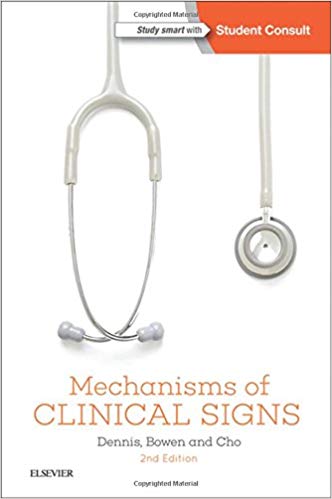
2016 BMA Medical Book Awards Highly Commended in the Medicine Category!
What causes that condition?
What does it mean?
Organised by body system, Mechanisms of Clinical Signs, 2nd Edition explains the underlying mechanism and value of the clinical signs you are expected to know, and the conditions they indicate. Each chapter contains descriptions of clinical signs, a list of the conditions they are associated with (what conditions the signs indicate), an explanation of the mechanism and the ‘value’ of those signs (how reliable they are as an indication of a condition).
There is a uniform set of subheadings for each sign:
- Description
- Condition/s associated with
- Mechanism/s
- Sign value
The explanations for the mechanisms underlying each sign are brief but accurate and informative, and provide sufficient information for the reader to understand the mechanism:
- Signs are ordered alphabetically within each chapter outlining a specific body system.
- Extensive reference lists of up-to-date literature strengthen the authority of the content.
- Video and audio content presents real life evaluation scenarios of clinical signs.
- Clinical Pearls highlight the main signs which students and trainees should look out for to help them identify conditions with which the patients present.
- A Student Consult eBook is available with the purchase of a print book, and provides access to a total of 200 multiple choice questions covering the 7 body systems, to test students and trainees’ knowledge of the content.
- The eBook contains links to audio and video examples of particular signs which have to be heard or observed over a period of time in order to be identified correctly, e.g. Agonal respiration in Chapter 2 Respiratory Signs.
- New images are added to depict clinical signs where no images were present in the previous edition.

